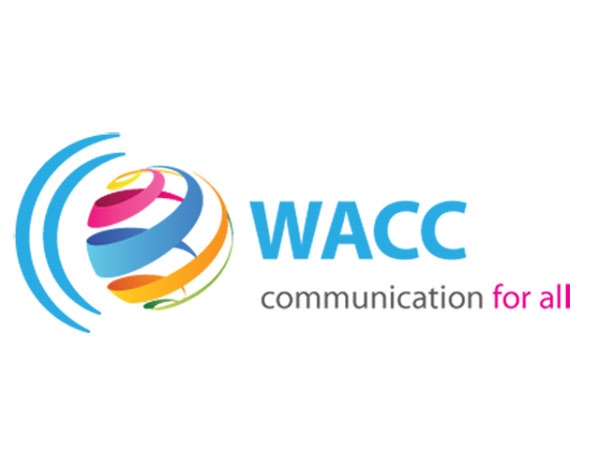On International Day of Democracy, WACC is calling on its worldwide network of members and partners to strengthen the voices of young people in the political, economic and social life of their countries.The theme of this year’s International Day of Democracy on 15 September 2014 is “Engaging young people on democracy”, highlighting the challenges and opportunities of young people taking part in democratic processes.People between the ages of 15 and 25 constitute a fifth of the world’s population.
In many developing countries, the proportion is even higher – with the majority of young people today living in low- and middle-income countries. There are more than 235 million youth in India and 225 million in China alone.Yet study after study shows declining faith among young people in politics, with decreasing levels of participation in elections, political parties and traditional social organizations. At the same time, informal, youth-led movements for democratic change are on the rise in a number of countries – including in fragile states.
WACC believes that recognizing and building on communication rights uphold genuine democracies – in which people and communities can strive for greater equality and peace and full participation in decisions that affect their lives. Yet, in many places in the world, communication rights are under threat.WACC members and partners are called to empower and encourage young people to voice their concerns for a better world. They can do so through such WACC-supported initiatives as the Creative Centre for Communication and Development (Zimbabwe), which is enabling girls to use citizen journalism and digital media platforms to change attitudes that perpetuate the practice of child marriage.In Colombia, Grupo ComunicArte is helping young people to express themselves on radio. Specialising in “school radios”, the group is working with teachers, community and traditional leaders to carry out a project that strengthens the participation of Indigenous Inga youth in genuine community development.
A recent report by the League of Young Voters in Europe – Addressing Youth Absenteeism in European Elections – says that lack of attention to youth issues and the existence of few young candidates for office contribute to political apathy. It also argues that young people are not necessarily disengaged from political processes, but that their preferred forms of activism are not recognized by parties and governments.Genuine communication involves sharing information and knowledge, discussing, listening and being heard. “Engaging young people on democracy” means making young people the subjects of communication and – crucially – hearing their voices.
Dr. Dennis Smith, WACC President
Rev. Dr. Karin Achtelstetter, WACC General Secretary

By bnnrc
AHM Bazlur Rahman-S21BR is Chief Executive Officer and founder Secretary of Bangladesh NGOs Network for Radio and Communication (BNNRC). He has more than 20 years experience in leveraging community media and right to communication to create successful policy advocacy in Bangladesh in line with community media development. His areas of expertise straddle community media policy advocacy, training, project management especially in the area of community media.
He founded Bangladesh NGOs Network for Radio and Communication (BNNRC). BNNRC Devoted Entirely to Promote Community Media for Development (CM4D). BNNRC Leads Supports and Advocates for the Initiators to actively provide independent community broadcasting in Bangladesh since 2000. BNNRC represent the community electronic media sector to Government, Industry, Regulatory Bodies, Media, Academia and Development Partners from 2000. The BNNRC provides leadership and support for rural initiators to facilitate independent electronic community broadcasting services and to build and strengthen rural communities.
He actively works to improve recognition of the community electronic media sector [Community Radio | Community TV | Community Film] & its work in and involvement with the communities it seeks to serve. BNNRC's outreach extends to local, national and international forums for communicating Knowledge for Development (KM4D). In this backdrop, communication is recognized as an essential human need and, therefore, as a basic human right. Our working strategies are:
1. Communicating on the Public Sphere: The role of communication and media in exercising democratic political participation in society
2. Communicating Knowledge: The terms and means by which knowledge generated by society is communicated, or blocked, for use by different groups.
3. Civil Rights in Communication: The exercise of civil rights relating to the processes of communication in society &
4. Cultural Rights in Communication: The communication of diverse cultures, cultural forms and identities at the individual and social levels.
BNNRC now strives for the following core interventions to contribute in achieving 6th five Years Plan, UN World Summit on the Information Society (UN WSIS) Action Plan and Millennium Development Goals (MDGs) through:
Right to Information- RTI for ensuring improved livelihood of the marginalized
ICT for Development- ICT4D for Bridging the Digital Divide in rural areas &
Community Radio/Community TV/ Community Film for amplifying voices for the voiceless and Amateur Radio for Disaster Risk Reduction
He graduated from University of Dhaka and Post graduated from Asian University of Bangladesh in the field of Social Science (MSS) in Government & Politics and Participated in certificate course on Development Management by Participatory Research in Asia (PRIA) New Delhi, India
He currently founder member of Bangladesh Working Group on UN World Summit on the Information Society (UN WSIS) headed by Bangladesh Government, Community Radio Monitoring Committee of Ministry of Information, People’s Republic of Bangladesh, founder member of Bangladesh UN Internet Governance Forum( UN IGF) Headed by Minister, Ministry of Information, Multi-stakeholder Steering Group Members of Asia Pacific Regional Internet Governance Forum (AP-RIGF) & Distinguish Fellow, Center for e-Parliament Research. Contact: ceo@bnnrc.net www.bnnrc.net
View all of bnnrc's posts.
